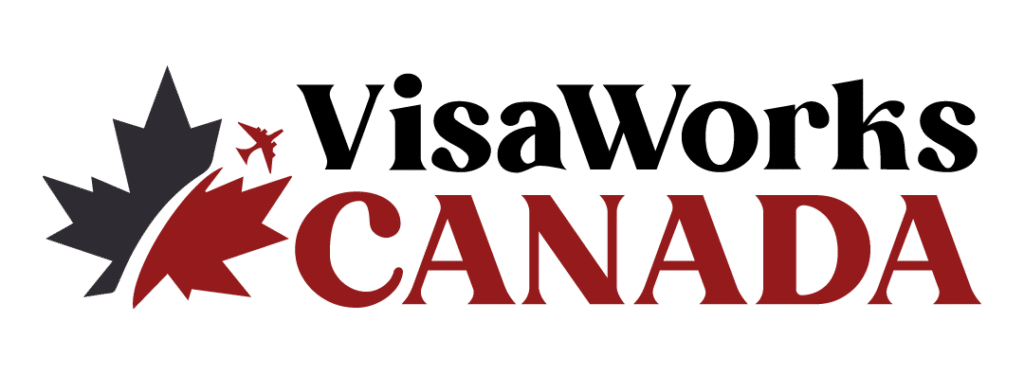Studying in Canada offers a wealth of opportunities beyond classroom learning. Internships and co-op programs provide valuable real-world experience, helping students bridge the gap between academic knowledge and professional skills. These programs are integral for students looking to enhance their employability and build a successful career.
Table of Contents
ToggleEngaging in internships and co-op programs allows students to gain practical insights into their chosen fields. This guide will cover everything you need to know about internships and co-op programs in Canada, including their benefits, how to find opportunities, and tips for making the most of these experiences.
Why Internships and Co-Op Programs Are Important
Gaining Real-World Experience
Internships and co-op programs offer hands-on experience that complements academic learning. Students can apply theoretical knowledge to real-world situations, gaining skills that are crucial for their future careers. This practical exposure helps students understand industry standards and work environments.
Moreover, internships and co-op programs provide a competitive edge in the job market. Employers value candidates with practical experience, making these programs essential for students aiming to stand out.
Building Professional Networks
Networking is a critical component of career development. Internships and co-op programs allow students to connect with professionals in their field, opening doors to future job opportunities. Building relationships with industry experts can lead to mentorship and valuable career advice.
Additionally, these connections often result in strong references, which are crucial for job applications. A robust professional network can significantly enhance a student’s career prospects.
Types of Internships and Co-Op Programs
Paid vs. Unpaid Internships
Internships can be paid or unpaid, each offering different benefits. Paid internships provide financial support, helping students manage their living expenses while gaining work experience. These positions are often more competitive but offer tangible rewards.
Unpaid internships, while lacking financial compensation, can still be valuable. They often provide flexible schedules and the opportunity to gain experience in prestigious organizations that may not offer paid positions. Both types of internships offer valuable learning experiences and networking opportunities.
Full-Time vs. Part-Time Co-Op Programs
Co-op programs can be full-time or part-time. Full-time co-ops typically involve working full-time hours for a semester or two, providing an immersive work experience. These programs allow students to deeply engage with their roles and projects.
Part-time co-ops, on the other hand, allow students to balance work and studies simultaneously. These programs offer flexibility, enabling students to gain work experience without pausing their academic progress. Both types of co-ops are valuable and can be chosen based on individual needs and schedules.
Eligibility for Co-op or Intern Work Permits in Canada
Some study programs in Canada require work experience. You can apply for a co-op or intern work permit if you meet these conditions:
- You hold a valid study permit.
- Your study program mandates work experience for completion.
- You have a letter from your school confirming that all students need work placements to graduate.
- Your co-op or internship makes up 50% or less of your study program.
Who Isn’t Eligible
You can’t apply for a co-op work permit if you’re enrolled in:
- ESL/FSL (English or French as a second language) courses,
- General interest courses, or
- Courses preparing for another study program.
If you’re not eligible for a co-op work permit but still want to work in Canada, you’ll need to apply for a regular work permit.
Navigating work permit requirements can be complex. From expert visa services to comprehensive guidance on obtaining the necessary permits, VisaWorks Canada Ltd. is here to help you navigate every step of your journey. Contact us now for personalized assistance.
Explore More: Top Industries for Internships and Co-Op Programs in Canada
Preparing Your Application
Crafting a Strong Resume
A well-crafted resume is essential for securing internships and co-op positions. Students should highlight relevant coursework, skills, and any previous work experience. Tailoring the resume to the specific role and company can make a significant impact.
Including keywords from the job description and showcasing achievements can also improve the chances of getting noticed. A polished and professional resume is a key tool in the application process.
Writing an Effective Cover Letter
A cover letter complements the resume by providing a personal touch. It allows students to express their enthusiasm for the role and explain why they are a good fit. A compelling cover letter should be concise, well-structured, and tailored to the specific position.
Highlighting relevant experiences and demonstrating an understanding of the company’s goals can make a cover letter stand out. Effective cover letters can significantly enhance the application.
Understanding the Legal Aspects
Work Hours and Conditions
Internship and co-op positions come with specific work hours and conditions that students must adhere to. Full-time positions typically require working standard business hours, while part-time roles offer more flexibility. Understanding these expectations is crucial for balancing work and academic responsibilities.
Students should also be aware of any labor laws and regulations that protect their rights as interns or co-op students. Knowing their rights ensures a fair and positive work experience.
Rights and Protections for Interns and Co-Op Students
Interns and co-op students have certain rights and protections under Canadian labor laws. These include the right to a safe work environment, fair treatment, and compensation for work performed. Understanding these rights can help students advocate for themselves if any issues arise.
It’s important for students to familiarize themselves with workplace policies and procedures. Knowing their rights and responsibilities ensures a productive and positive work experience.
Explore: Interview Tips for Internship and Co-Op Positions
Balancing Work and Studies
Time Management Tips
Balancing work and studies requires effective time management. Students should create a schedule that allocates time for both work and academic responsibilities. Prioritizing tasks and setting realistic goals can help manage workload efficiently.
Using tools such as calendars and planners can also aid in staying organized. Time management is crucial for maintaining a balance between work and studies.
Prioritizing Responsibilities
Prioritizing responsibilities is essential for managing both work and studies. Students should focus on completing high-priority tasks first and allocate time for regular breaks to avoid burnout. Understanding the importance of each task can help in effective prioritization.
Staying disciplined and organized is key to balancing multiple responsibilities. It ensures that both work and academic commitments are met.
Learn More: Post-Internship Opportunities
Conclusion
Participating in internships and co-op programs in Canada offers numerous benefits. From gaining real-world experience to building professional networks, these programs are essential for career development. Understanding the various aspects of internships and co-op programs can help students make the most of these opportunities.
From expert visa services to comprehensive guidance on permanent residency, study visas, and business opportunities in Canada, we’re here to support you every step of the way. Contact us for personalized help today.
Frequently Asked Questions (FAQs)
What is the difference between an internship and a co-op program?
An internship is typically a short-term work experience, often lasting a few months, while a co-op program is a longer-term arrangement, usually integrated into an academic program, lasting several semesters.
Can international students participate in internships and co-op programs in Canada?
Yes, international students can participate in internships and co-op programs in Canada, provided they meet the necessary academic and work permit requirements.
Do all internships and co-op programs require a work permit?
International students typically need a co-op work permit to participate in internships and co-op programs that are part of their academic curriculum.
How do I find internship and co-op opportunities?
Students can find opportunities through university career centers, online job portals, and company websites. Networking and attending industry events can also be helpful.
What should I include in my resume and cover letter?
Your resume should highlight relevant coursework, skills, and any previous work experience. The cover letter should express enthusiasm for the role and explain why you are a good fit.
How can I turn my internship into a full-time job offer?
To turn an internship into a full-time job offer, demonstrate strong performance, reliability, and a positive attitude. Building relationships and expressing interest in long-term opportunities can also help.








